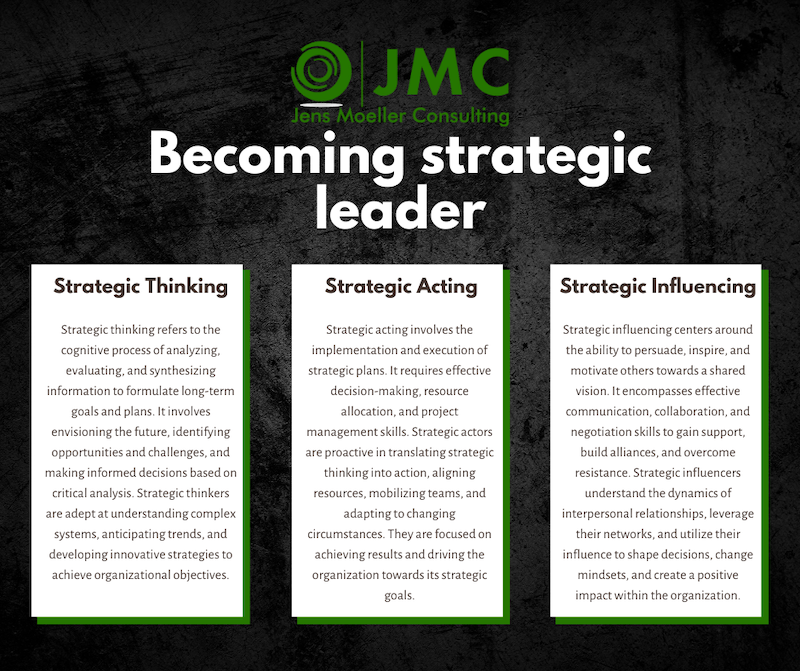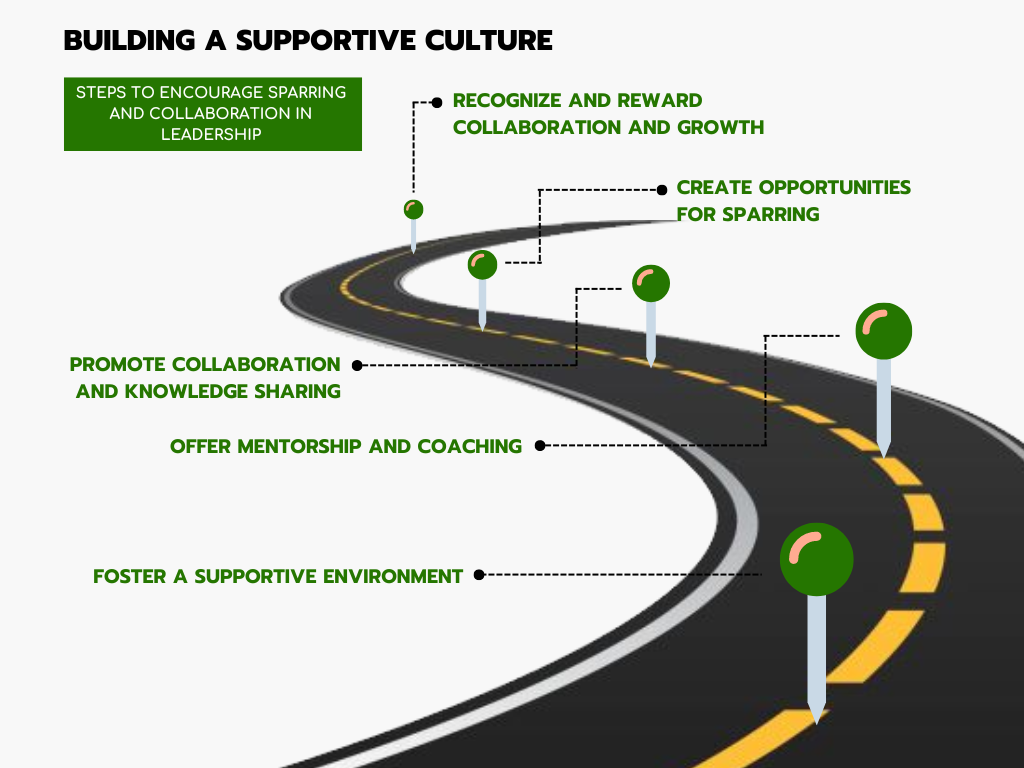In today’s fast-paced and competitive business environment, leaders face a multitude of challenges that can hinder their progress. That’s where Jens Möller’s strategies come into play. With his practical insights and actionable steps, leaders can navigate these obstacles successfully, achieve their goals, and foster growth within their organizations. This blog post shares eight powerful strategies to empower leaders on their path to success. By incorporating these strategies into their leadership practices, individuals can enhance their decision-making abilities, inspire their teams, and drive meaningful change within their organizations. These strategies will unlock leaders’ full potential, drive organizational success, and make a lasting impact on their teams and organizations.
Identify the Leaders Involved
To effectively achieve strategic goals, it is crucial to identify all the leaders who play significant and marginal roles in the objective. By involving key stakeholders at different levels, leaders can foster collaboration, alignment, and a shared sense of purpose. For example, imagine a project aimed at implementing a new CRM system. Leaders involved may include the CEO, department managers, project managers, and key stakeholders. By ensuring that all relevant leaders are engaged from the start, organizations increase their chances of successfully implementing strategic initiatives. Studies have shown that organizations involving multiple leaders in goal achievement are 50% more likely to succeed.
Start Top-Down with Senior Leaders
Effective leadership begins with senior executives who set the vision and direction for the organization. Senior leaders must clearly communicate the rationale behind goals and how they align with the organization’s long-term strategy. By understanding the personal motivations and critical questions of senior leaders, individual goals and strategies can be aligned with the overarching vision. For instance, if the goal is to expand into new international markets, the CEO could share their personal experiences of missed opportunities in untapped markets, emphasizing the potential for significant revenue growth. This storytelling approach helps create a compelling narrative that resonates with leaders at all levels.
Provide Support and Encourage Sparring
Leaders greatly benefit from having a support system that challenges and guides them in decision-making. Engaging in meaningful discussions, asking critical questions, and seeking diverse perspectives enable leaders to make informed choices and drive effective action. For example, when implementing a major operational change, a leader could form a cross-functional task force consisting of individuals from various departments. This team can provide valuable insights and act as a sounding board for the leader, fostering a culture of collaboration and innovation. Research has shown that teams with diverse perspectives outperform homogeneous teams by 60% in decision-making effectiveness.
Consider the Role of a Mediator
In complex situations where transparency and honest feedback may be challenging, a mediator can facilitate constructive dialogue. Mediators help ensure that all parties are heard, concerns are addressed, and information is shared effectively. This fosters trust, collaboration, and synergy among leaders, enabling them to make better decisions and drive progress towards goals. For instance, if two department heads have conflicting strategies, a mediator can facilitate discussions and help them reach a mutually agreed-upon approach that aligns with the organization’s overall objectives. This intervention prevents potential roadblocks and ensures smoother goal achievement.
Maintain Follow-up and Measurement
Regular follow-up and measurement are essential for goal achievement. Leaders must establish milestones, allocate resources, and provide the necessary support to ensure goals remain on track. Regular progress reviews, data analysis, and adjustment of strategies based on performance metrics help leaders stay informed and celebrate successes. For instance, organizations that consistently track and measure their progress towards goals are 42% more likely to achieve their desired outcomes. By keeping a pulse on performance and providing ongoing support, leaders can ensure that goals are achieved efficiently and effectively.
Foster a Culture of Innovation
Encouraging and nurturing a culture of innovation is crucial for long-term success. Leaders should create an environment where employees feel empowered to share their ideas, experiment with new approaches, and challenge the status quo. For example, organizations that allocate a specific portion of their budget to innovation projects have been found to achieve a 10% higher return on investment compared to those that don’t. By fostering a culture that values creativity, risk-taking, and continuous improvement, leaders can unlock the full potential of their teams and drive sustainable growth.

Embrace Continuous Learning
Leadership development should be an ongoing journey rather than a one-time event. Leaders must invest in their own growth and encourage their teams to do the same. By prioritizing continuous learning, leaders can stay abreast of industry trends, sharpen their skills, and adapt to evolving business landscapes. For example, organizations that invest in leadership development programs have seen a 25% increase in employee engagement and a 32% higher likelihood of retaining top talent. By cultivating a learning mindset, leaders can inspire their teams, lead by example, and drive organizational success.
Celebrate Achievements and Learn from Setbacks
Recognizing and celebrating achievements along the way is crucial for maintaining motivation and momentum. Leaders should acknowledge milestones reached, express appreciation for efforts, and celebrate collective wins. Additionally, setbacks and failures should be seen as learning opportunities rather than roadblocks. By conducting thorough post-mortems and extracting valuable lessons from setbacks, leaders can refine their strategies and continuously improve. Organizations that embrace a culture of celebrating achievements and learning from setbacks experience higher employee morale, increased resilience, and a 23% higher success rate in achieving their goals.

In conclusion, by implementing these eight effective strategies, leaders can enhance their ability to achieve goals, drive growth, and foster organizational success. It requires a combination of strategic thinking, effective communication, collaboration, and a commitment to continuous improvement. By leveraging the insights shared by Jens Möller and integrating them into their leadership approach, leaders can navigate challenges, inspire their teams, and create a path to long-term success.
To further support your leadership journey and drive tangible results, consider reaching out to JMC Consulting. Our expertise lies in helping leaders improve team and individual performance by addressing various challenges. We work with company Boards, Senior Management, and CEOs/founders to provide support in areas such as company reorganization, change management, leadership, and marketing strategy, among others. Our ultimate goal is to deliver measurable performance improvements for our clients.
Remember, effective leadership goes beyond reaching goals; it’s about empowering others, driving positive change, and leaving a lasting impact on the organization and its people. Take the next step towards unlocking your leadership potential and achieving remarkable outcomes with JMC Consulting.
CONTACT JMC CONSULTING
 by Jens Moeller
by Jens Moeller